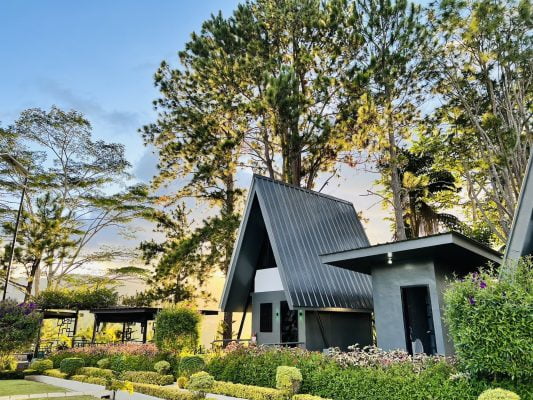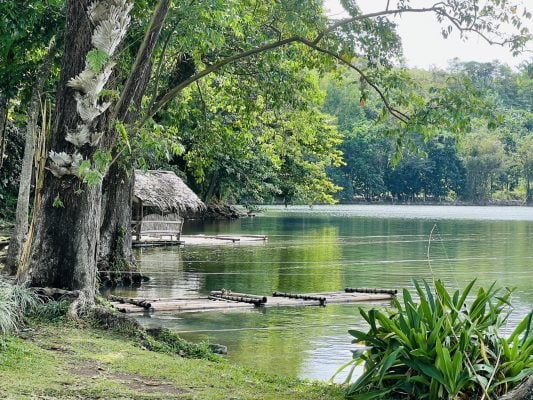Do you like bananas? I bet you do!
But did you know that there’s more to bananas than just the bunches we buy from supermarkets? If you’re like me who has little to zero knowledge about agriculture, you’d be surprised that there’s a complicated science behind growing bananas!
Bananas are among the top agricultural export commodities from the Philippines, with Japan and China as the major markets. Philippine bananas have reached the United States but exportation is quite a challenge since bananas spoil quickly.
Hijo Resources Corporation of Tagum City, Davao del Norte was the very first exporter of bananas from the Philippines. And now they have opened the doors of their 760-hectare property for the public to learn about the intricate science that goes on behind every perfect banana on our tables.
The exciting set of tours offered to guests of Banana Beach Resort include the plantation tour. The resort is actually part of the banana plantation, the only one of its kind in the world! It’s not the usual tourist fare but plantation tours are educational; it can make you appreciate every bite of banana you take henceforth.
Banana Plantation
The first part of the Banana Beach Resort Plantation Tour is an introduction to the process of tissue culture which results in banana seedlings. Hijo Resources Corporation uses these on their plantation or sells them to small growers.
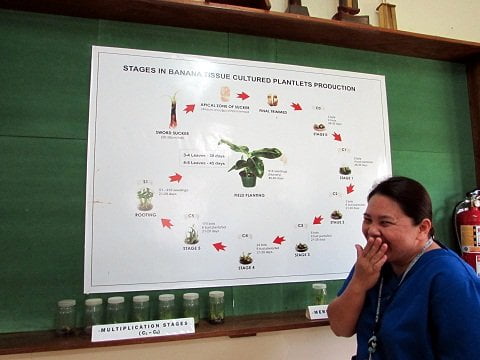
One thing I realized during the plantation tour is that the company is concerned about sustainability not just for their business but for the surrounding community as well. Majority of Davao del Norte make their bread and butter through growing bananas.
The Packing House
The plantation tour also stops by the Packing House. Bananas from the property go to the packing house before going to individual buyers. The place is bustling with workers going about their own businesses, washing, cutting, and packing tons of just-harvested bananas.
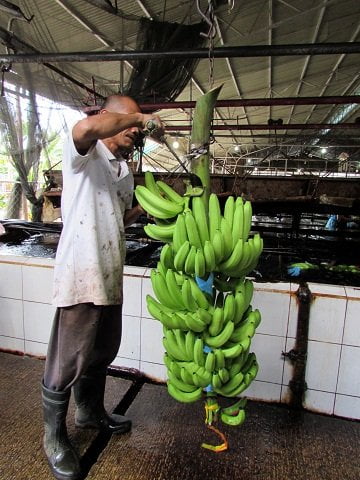
First, the harvesters remove the clusters from the plants. Then plant workers manually detach each bunch before placing them in a large tub of water. The bath is mixed with alum (tawas) to effectively remove the sticky sap.
Quality checking follows the bath and then the bananas are classified. I was informed that Japan is very particular when it comes to flaws on the bananas they import; even a small brown spot could result in the rejection of the products. The Japanese must place great value to their bananas!
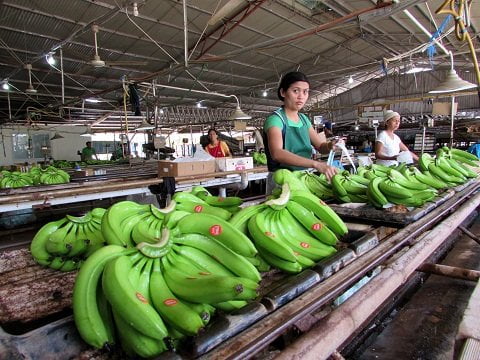
Hijo exports their produce to Japan and China but they have local markets as well. At the time of our tour, there were people from a local organization who were collecting “rejects” for a feeding program. Even the rejects looked good that I think they can easily be those we often buy from supermarkets.
Coconut Products
Aside from bananas, Hijo also grows coconuts in a considerable portion of their land. But while copra is what would immediately come to mind when we hear of coconut plantations, theirs has a different direction.
Hijo produces coco sugar under the brand Twin Rivers. Their sugar is unlike the usual kind we use which goes through complicated processing with chemicals involved. Coco sugar is all-natural and has lower glycemic index than cane sugar, making it perfect for health-conscious individuals and those who have special dietary requirements.
They gave me a sample packet which I nibbled on during the tour. I did not feel like I was eating sugar at all! Coco sugar tasted like a dried-up latik. I was even tempted to ask if they have biko to go with it!
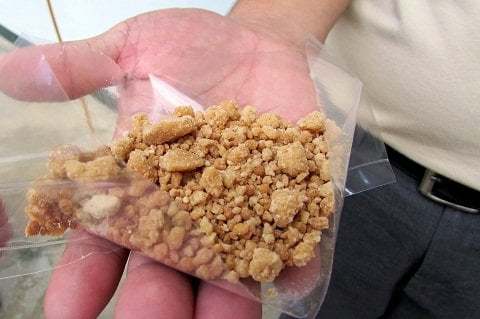
How Coco Sugar is Made
Coco sugar is made from freshly harvested coconut sap. They collect the sap every four hours to ensure freshness. If harvested later, the sap would then start to ferment and result in the popular liquor called tuba or palm wine. I was able to take a small sip of just-harvested sap and it did not taste like tuba at all. It was sweet! NOTE: A tour through the coconut plantation is actually included in the Forest Tour due to location.
Final Thoughts
Taking the Banana Beach Resort Plantation Tour was surprisingly an enjoyable experience. It is foremost an educational tour but it was also fun watching the bananas getting packed and classified. The tour was also an eye opener; it tells the story behind each banana that reaches our tables, ready to be consumed.
As of this writing, Hijo does not produce organic bananas but since the market for this is increasing, we can only expect them to rise to the demand. They are expanding their plantation so maybe they would dedicate a portion for chemical-free Cavendish goodness soon.
The Banana Beach Resort Plantation Tour costs P200 per person on weekdays and P250 during weekends. Those who avail of the Special Day Package have the option to choose the Plantation Tour over the Forest Tour which is an entirely different experience. Banana Beach Resort’s Special Day Package costs P1200 on weekdays and P1500 on weekends and holidays. This already covers round-trip transportation from Davao City, welcome drinks, lunch and unlimited access to the resort’s infinity pool. You have to come in a group of at least 8 to avail of this package.
Click here for more photos of the Banana Beach Resort Plantation Tour
If you’re traveling the Philippines searching for unique adventures, the Banana Beach Resort Plantation Tour should be on your bucket list. It is enriching and who knows, you just might be inspired to grow your own bananas too!




